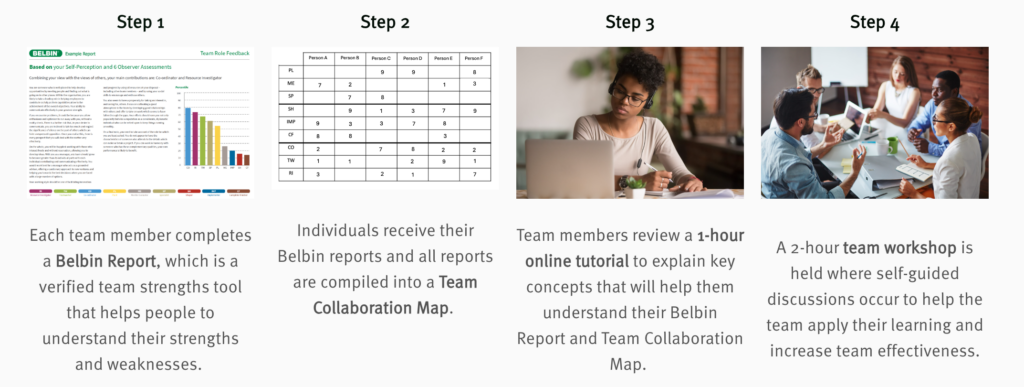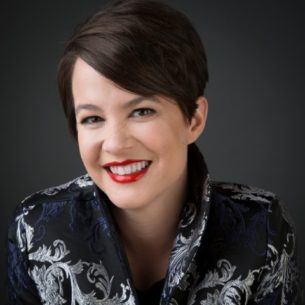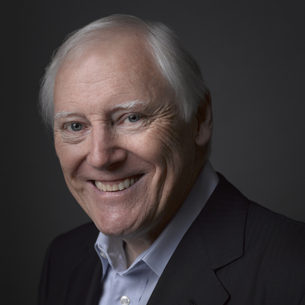An organization is only as successful as its teams. In a complex, uncertain and fast-moving world, teams are the building blocks of organization health – the key link between individual talent and business outcomes.
In short, building high performing teams should be amongst the key priorities of every business.
Antony Jay, foreword to ‘Management Teams, Why they Succeed or Fail’ by Meredith Belbin
A large body of research has demonstrated the need for teams within organizations. A survey by EY discovered that almost 9 out of 10 companies “agree that the problems confronting them are now so complex that teams are essential to provide effective solutions”. In addition, “an overwhelming majority of respondents think that their organization’s ability to develop and manage teams will be essential for their future competitiveness”.
In teams, people work concurrently, saving time and resources. Responsibilities are shared and individual team members are accountable to one another. Resources can be pooled, allowing teams to collate, organize, cross-reference and analyze information more effectively than individuals can. Teams have the benefit of greater innovation too, because diverse individuals are able to share and develop ideas together. With knowledge shared in teams, organizations can learn – and document and retain that knowledge – more effectively.
Each of us will work as part of a team during our working lives. Yet, teamwork doesn’t always… work. Some teams gel and others don’t.
Dr Meredith Belbin
“I do a lot of team coaching and at the moment. Quite a few teams have been asking me to come in and help them to become higher performers, and I found bringing in Belbin has been a fantastic way to look at the teams. To look at how they are conflicting with each other, looking at how they are complementing each other… People have actually said this has been completely life-changing for our teams.”
Belbin works with teams to help each person understand their strengths in terms of nine Team Roles – nine distinct clusters of behavior which are needed to facilitate team progress. Once people understand their Team Role strengths and weaknesses, they have a language that can be used every day at work.
The language of Belbin Team Roles allows managers to allocate work to the right people, put together effective working relationships and ensure that weaknesses are managed without impinging on the collective strengths. In terms of employee development, it helps team members understand how they contribute to the overall team, how their behavior impacts the team and how to boost the team’s overall performance.
Our reports, training, workshops, and resources enable organizations to build stronger teams with a defined purpose, clear communication, and greater effectiveness.
A high-performing team is a group of skilled individuals who are selected to work together to meet a common objective and share responsibility for outcomes.
Great teams have some key characteristics. They will:
Whatever the metric for high performance, all teams have the potential to perform better, given the right tools.
Our personalized behavioral reports focus on the nine key clusters of behavior (Team Roles) needed for team success. They help people to better understand their strengths, cultivate hidden talents and work more effectively together.
To build and cultivate great teams, team members need to understand, recognize and maximize the behavioral strengths of others, while managing and containing the associated weaknesses.
The Belbin Individual report analyzes an individual’s contributions in terms of the nine Belbin Team Roles, offering advice and guidance on how they might work best, announce their preferences to others and cultivate latent talents.
No two teams are the same, but the characteristics of high-performing teams are universal. Understanding these attributes can help you to gauge where your team is and where it needs to go. The checklist below might help you.
Looking at each characteristic in turn:
A team must have a purpose that is clear, communicated and understood by all team members.
The first question when considering team effectiveness should be: “What is the team being set up to do?” Understanding this purpose can help you answer subsequent questions about the size and composition of the team, as well as how its success should be measured.
Successful team composition is concerned with ensuring that you have the right combination of skills, abilities and behavioral contributions present in the team to enable it to meet its objectives.
Members of high performance teams are chosen for what they can contribute and have a clear understanding of what is expected of them and others in the team. They are not bound by rigid job titles or definitions, but know how to work effectively within their remit and when to call on others within the team.
By contrast, role ambiguity can be detrimental to performance. This occurs when someone is unclear about expectations in terms of their tasks and responsibilities.
Norms are the rules of engagement by which a team operates. Sometimes norms are implicit and longstanding and may not be fully understood by everyone in the team.
Discussing and establishing behavioral norms helps people focus on team values, promotes understanding of others’ behavior and establishes to understand the boundaries of acceptable and unacceptable behavior within the team.
How have the norms changed over the past 2 years? Are these explicit and visible to new team members?
We’d like to find out more about the problems you and your teams face. Whatever the problem, we’d love to explore ways to help turn your existing team into a high-performing one. Click here to start the conversation.
Effective communication is crucial to team success. It is key to engagement and performance, and it is shown to reduce stress and conflict. In high performing teams, team members are able to communicate effectively and are not restricted by hierarchical considerations.
“Without open, explicit communication about tools and processes, individuals have trouble making clear to one another what they are doing.” Rhodes, 1991
Dr Belbin’s research studied teams in action, coding and documenting the exact nature of their interactions every thirty seconds over the course of a team exercise. The nine Team Roles were discovered as a result of these observations.
“Making people aware of their own strengths results in better communication among team members and thus higher levels of performance.” Harvard Business Review
Belbin Team Roles help individuals identify their behavioral strengths, so they can better understand how to contribute to the team as a whole, and when to ask other team members for help. Team Role theory is used in organizations worldwide to help teams communicate more effectively and to surmount hierarchical boundaries which prevent teams from attaining their best performance.
Leadership within the team should be rotated, depending on where the team is in relation to the business objective. Belbin enables teams to excel in project management by helping them to identify which team members are needed at each stage of a project and giving individuals the confidence to act as team leader when appropriate, and to lead according to their strengths.
Google’s Project Aristotle found that, in order to succeed, team members need to feel safe to take risks and make mistakes without fear of recrimination. While trust exists between individuals, psychological safety is a team construct.
Stressful situations prompt our fight, flight or flee response, which inhibits both our perspective and our reasoning abilities. Within a team, the stakes are higher still. In primal terms, being rejected from a group could mean struggling to find resources alone—a fight for survival. But while our evolutionary drive is to crave acceptance and nod along, the world of business needs us to speak out when things go wrong, adapt, take risks, fail and grow together.
Without psychological safety, a team is likely to founder. If people don’t feel able to speak out, it takes longer for mistakes to be identified. Conflicts which might be aired and resolved are allowed to fester. Or perhaps the team becomes embroiled in long-term strategies that ultimately fall foul of the ground moving beneath our feet.
By contrast, we become more open-minded, creative and resilient when we feel safe. We allow ourselves to think laterally and we’re more likely to keep a sense of humour when things go wrong.
Whether you would like one of our experienced facilitators / consultants to work with you and your teams, or if you would like to become a Belbin expert, we can help.
We look at the issues that are specific to your organization, and the people within it. Then, using the Belbin theory, we build a bespoke workshop specifically designed to address the issues that you are facing.
Using a Belbin facilitator ensures that everyone can participate and maximize their contribution. We facilitate sessions with teams at all levels, from boards of directors to new recruits.
Belbin accreditation is recommended for anyone who uses – or wants to use – Belbin Team Roles as part of their training toolkit.
Whether you’re an HR, L&D or training professional, or an independent facilitator, coach or management consultant, Belbin accredited certification will give you a solid grounding in Belbin theory, and confidence in delivering report feedback and team workshops.
Teams where everyone thinks in the same way are likely to be collegiate, but homogenous teams tend to lead to groupthink and neglect opportunities and perspectives other than their own. While cohesion may seem like a positive, the pressure to conform to a group can mean that team members switch off their critical faculties in the interests of consensus with the group.
Over time, teams can develop a culture which rejects newcomers with different ideas and approaches. Team problems can become entrenched and the reasons (and solution) are not obvious to those within the team.
While it may feel uncomfortable to admit those with very different perspectives to our own, it is the safest way to guard against stagnation in a team. When a new team member is introduced to a cohesive team, it is important to manage integration and potential conflict.
Conflict often arises from misunderstanding or lack of communication. It can manifest itself in many ways. Lowered morale, reduced productivity and increases in absenteeism can all be strong indicators that something needs to be addressed.
Sometimes teams become too inward focused and forget their role within the larger picture. Teams can start to compete with other teams, or start dismissing other team’s suggestions and outputs. This can lead not only to cross-team conflict, but to reduced productivity within organizations. However, conflict is essential for teams. Professor Richard J. Hackman’s research found that disagreements were good for a team, so long as they were handled in the right way and focused on the team’s objectives.
Belbin is useful in areas where discussions can too often include personal attacks and can often exacerbate the problems. The language of Team Roles depersonalizes conflict, helps team members to understand and appreciate diverse viewpoints, and refocuses them on how best to achieve their objectives.
One of the fundamentals about teams (that is largely ignored by a lot of coverage on teams) is that size matters. Teams should be limited in size, since they should only contain people that have been actively selected for what they can contribute to the team at a given time. And people in the team should change – teams should be fluid and reactive, changing to ensure they achieve whatever it is they set out to do.
This number ensures the team members will have equal(ish) input, airtime, responsibility and actions. There shouldn’t be any duplication of roles (functional or team) and decision-making will be less drawn out. An even number means that agreement has to be reached – no one person has the casting vote. Groputhink is less likely to happen. People are more likely to challenge, discuss problems openly, and arrive at appropriate solutions.
While there are nine Team Roles, high performing team members can make a positive contribution using more than one Team Role. In general, we tend to find that we can play all nine Team Roles, but we have real strengths in two or three, can manage an additional two or three and have two or three roles that are best delegated to someone with the relevant strength. This means that a team of four, if put together with care, should cover all nine Team Roles.
As numbers increase, the team’s narrative changes:
Ernst and Young, May 2013
Jeff Bezos, Amazon CEO
There are a number of interconnected factors which enable effective team performance.
Even for highly effective teams, consistency of performance is not a given and frequent, regular work is needed to keep teams working to their full potential.
Belbin Team Roles is proven to help build relationships, clarify objectives, address conflict, delegate work, help leaders and support real teams.
We’d like to find out more about the problems you and your teams face. Whatever the problem, we’d love to explore ways to help turn your existing team into a high-performing one. Click here to start the conversation.
© Copyright 2023 3Circle Partners
DBA Belbin North America
All rights reserved.



Patrick offers more than 25 years of experience with some of the most successful businesses in Europe as a consultant, change manager and executive coach.
